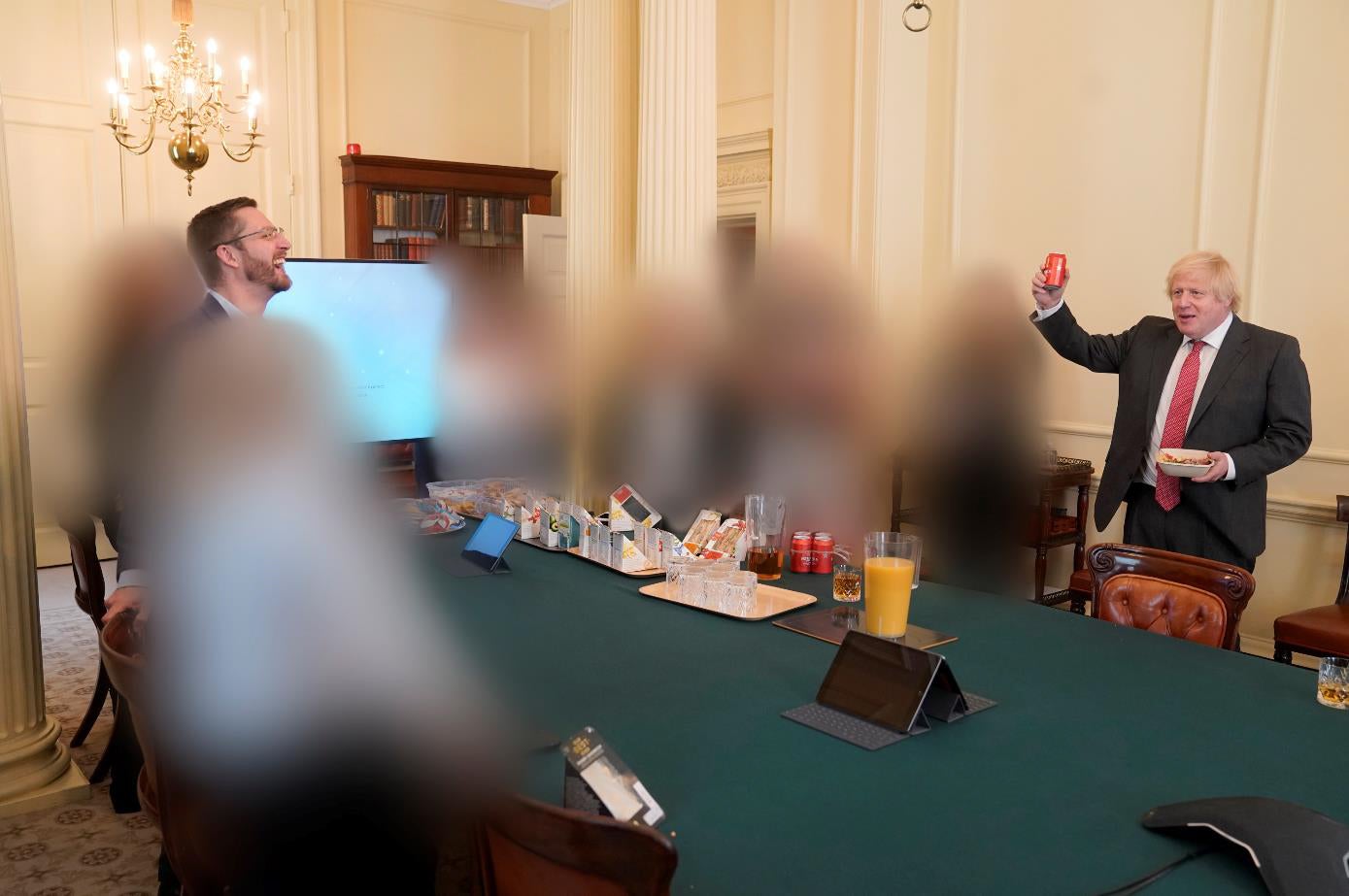Sue Gray’s report: What she said – and what she really meant
Our chief political commentator reads between the lines of the long-awaited report into Downing Street parties


What Sue Gray said: Whatever the initial intent, what took place at many of these gatherings and the way in which they developed was not in line with Covid guidance at the time.
What she really meant: You don’t need to be a police officer to know when someone is bang to rights.
What she said: Even allowing for the extraordinary pressures officials and advisers were under, the factual findings of this report illustrate some attitudes and behaviours inconsistent with that guidance.
What she meant: “We were all working very hard” is not an excuse.
What she said: The events that I investigated were attended by leaders in government. Many of these events should not have been allowed to happen.
What she meant: Claiming to have received only one fixed penalty notice is no way to try to minimise the seriousness of the prime minister’s crime. He is the leader of the government. He broke the law. Obviously he should resign.
What she said: It is also the case that some of the more junior civil servants believed that their involvement in some of these events was permitted given the attendance of senior leaders. The senior leadership at the centre, both political and official, must bear responsibility for this culture.
What she meant: It is beneath contempt for someone who claims to take full responsibility for everything to allow junior staff to be penalised for doing what he did.
What she said: Since my update there have been changes to the organisation and management of Downing Street and the Cabinet Office with the aim of creating clearer lines of leadership and accountability and now these need the chance and time to bed in.
What she meant: Still, it is not my job to bring down an elected prime minister. I am an impartial civil servant. So I must provide my boss with excuses for failing to do the decent thing. He could say he has learned his lesson and changed all the staff who let him down.
What she said: I found that some staff had witnessed or been subjected to behaviours at work which they had felt concerned about but at times felt unable to raise properly.
What she meant: The prime minister was responsible for an atmosphere in which staff who thought that people in No 10 should be particularly careful to obey the law, which applied to them as much as to anyone else in the country, were regarded as naive fools.
What she said: I was made aware of multiple examples of a lack of respect and poor treatment of security and cleaning staff. This was unacceptable.
What she meant: When a senior civil servant says something is “surprising”, she means the politician responsible must be out of their mind. When she says it is “unacceptable” she means they should have resigned some time ago.
What she said: I also made a recommendation that steps should be taken to ensure that every government department has a clear and robust policy in place covering the consumption of alcohol in the workplace. Since then guidance has been issued to all government departments.
What she meant: It is beyond belief that people thought that drinking at work was all right, and that they weren’t embarrassed by “Wine Time Friday”. The prime minister, who has been photographed with bottles of wine and gin on the table in front of him, knew all about it.
What she said: The matter of what disciplinary action should now take place is outside of the scope of this report and is for others to consider.
What she meant: An echo of Sir Geoffrey Howe’s words to Margaret Thatcher in 1990: “The time has come for others to consider their own response.” An invitation to Michael Heseltine to challenge the prime minister for the Conservative leadership.
What she said: While there is no excuse for some of the behaviour set out here it is important to acknowledge that those in the most junior positions attended gatherings at which their seniors were present, or indeed organised.
To keep up to speed with all the latest opinions and comment, sign up to our free weekly Voices Dispatches newsletter by clicking here
What she meant: It is patently unfair that junior staff should be disciplined for events for which senior staff and the prime minister himself should take responsibility. If he had a mote of honour, he would have paid their fines for them and resigned.
What she said: Many will be dismayed that behaviour of this kind took place on this scale at the heart of government. The public have a right to expect the very highest standards of behaviour in such places and clearly what happened fell well short of this.
What she meant: The prime minister should resign.
What she said: It is my firm belief, however, that these events did not reflect the prevailing culture in government and the civil service at the time. Many thousands of people up and down the country worked tirelessly to deliver in unprecedented times. I remain immensely proud to be a civil servant and of the work of the service and the wider public sector during the pandemic.
What she meant: I do not blame civil servants for what happened. There is only one person who should take responsibility.
Join our commenting forum
Join thought-provoking conversations, follow other Independent readers and see their replies
Comments
Bookmark popover
Removed from bookmarks